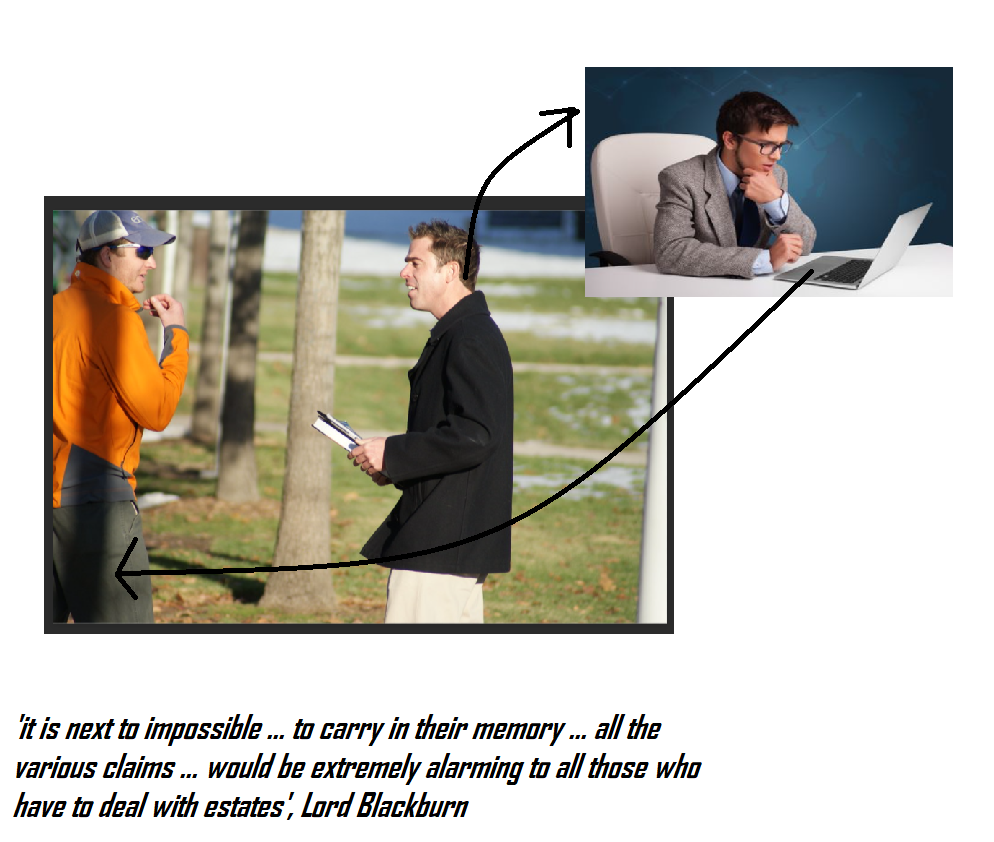Brownlie v Miller, (1880) 5 AC 925, (1880) 7 R (HL) 66
Citation:Brownlie v Miller, (1880) 5 AC 925, (1880) 7 R (HL) 66
Rule of thumb:What if a party says something in negotiations which you think might be wrong but you’re not sure? Where one party says a fact to the other party in contract negotiations something that the other party knows was wrong, and the other party does not correct them, this is a misrepresentation by silence, but, if the other knew it might be wrong but would need to check it up, a failure to correct the party’s wrong statement of fact is not a misrepresentation by silence.
Background facts:
The facts of this case were that the Brownlie, the buyer, and Miller, the seller, had a number of meetings before a sale of lands was agreed. Bronwlee, the buyer said a number of things about the land which the seller, Miller, knew to possibly be false, but did not categorically know they were false, and Miller did not interject to correct or caution Brownlee. Afterwards the seller, Miller, did not check out everything the buyer, Bronwlie, said and get back to him. Brownlie then bought the land only to discover later on that many of the representations he made to Miller were untrue, so he sought a reduction of the contract, but Miller refused to do so.
Parties argued:
Brownlie argued that Miller committed negligent misrepresentation by silence by failing to interject to correct or caution him. Miller argued that he did not know for sure if what Brownlie was saying was true, and he did not want to say anything when he was not sure of his position. Miller said that as a salesmen it would be nigh-on impossible for him to check on the veracity of everything people said to him that he was not sure about because he does not always recall the full detail of the conversations.
Judgment:
The Court upheld the arguments of Miller. If someone is not sure about representations made by the other then these are not negligent misrepresentations by silence. Miller did not have to give Brownlie his money back.

Ratio-decidendi:
'I further agree in this; that when a statement or representation has been made in the bona fide belief that it is true, and the party who has made it afterwards comes to find out it is untrue, and discovers what he should have said, he can no longer honestly keep up that silence on the subject after that has come to his knowledge, thereby allowing the other party to go on, and still more, inducing him to go on, upon a statement that was honestly made at the time when it was made, but which he has not now retracted when he has become aware that it can be no longer honestly persevered in. That would be fraud too, I should say, that at present advised. And I go on further still to say, what is perhaps not quite so clear, but certainly it is my opinion, where there is a duty or obligation to speak, and a man in breach of that duty or obligation will hold his tongue and will not speak, and does not say the thing he was bound to say, if that was done with the intention of inducing the other party to act upon the belief that the reason why he did not speak was that he had nothing to say, I should be inclined myself to hold that that was fraud also... would be a doctrine which would be extremely alarming to all those who have to deal with estates. It is next to impossible for persons who are largely concerned in the buying and selling of estates to carry in their memory, especially when unchallenged, all the various attempts which may have been made by different persons to raise claims with regard to those estates. There are estates which are in a state of chronic litigation by parties who believe that they have some title, a fanciful one for the most part, and who constantly go on putting forward a claim because it is difficult to ascertain the exact rights of the parties, there being other persons in the same position as themselves, and the number of possible claimants being spread out very widely and largely. An illustration of that is afforded by the old case which is well known in Chancery by the name of Jenning's Estate, and there are one or two others, to say nothing of other more recent litigation. To say that all the persons dealing with such estates at all were bound to communicate the fact of so many people having made claims, although the claims were never pushed forward into active operation, would certainly raise a new head of equity which would be destructive of all tranquil possession of property whatever... In these circumstances, this being a question not of fact known to Mr. Carment but of a legal opinion which he never did entertain, and which it cannot be said that he was reasonably bound to entertain, I do not think it can be brought up to a case of legal fraud or of fraud of any kind so as to entitle the Appellant to the relief which he seeks. I therefore concur in the judgment which your Lordships propose’, Lord Blackburn
, 'it is next to impossible ... to carry in their memory ... all the various claims ... would be extremely alarming to all those who have to deal with estates', Lord Blackburn
Warning: This is not professional legal advice. This is not professional legal education advice. Please obtain professional guidance before embarking on any legal course of action. This is just an interpretation of a Judgment by persons of legal insight & varying levels of legal specialism, experience & expertise. Please read the Judgment yourself and form your own interpretation of it with professional assistance.

